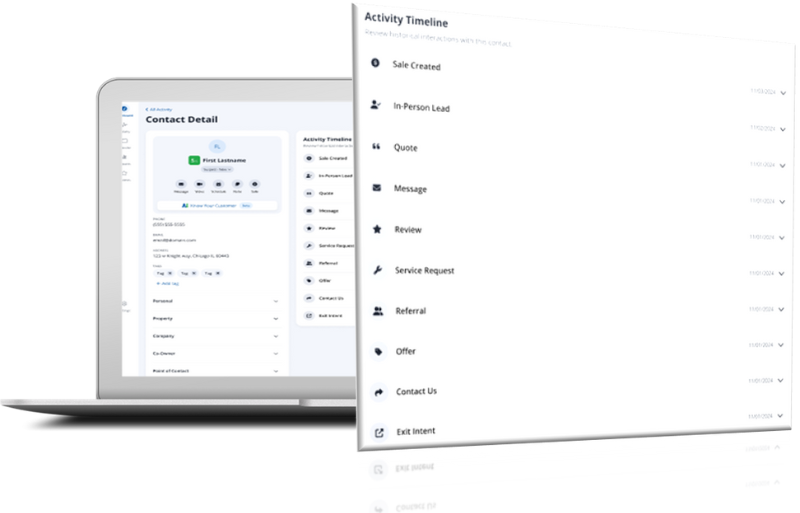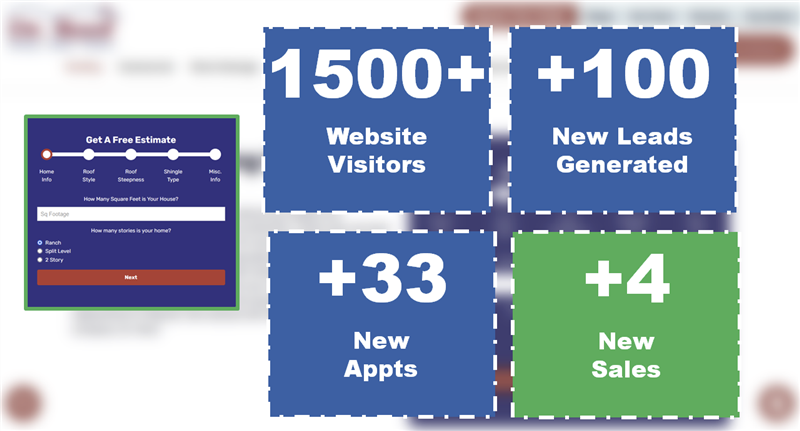Avoid Costly Mistakes: Understanding One-to-One Consent for TCPA
Picture this: Your home services business launches a marketing campaign that brings in a surge of leads. But instead of new customers, you’re met with complaints and legal threats. The issue? A failure to secure proper consent to contact those leads. This scenario underscores the importance of "one-to-one consent" under the Telephone Consumer Protection Act (TCPA).

In the home services industry, where direct communication drives sales, overlooking this requirement can lead to costly fines and damage your reputation. This article explains what one-to-one consent entails, its importance under TCPA, and how our software can help you stay compliant with ease.
What is One-to-One Consent?
One-to-one consent is the explicit permission you must obtain from a consumer before contacting them through phone calls, text messages, or other TCPA-regulated communication methods. Unlike general or implied consent, one-to-one consent is specific, clear, and directly tied to the particular type of communication you're planning to send. For instance, if a homeowner provides their phone number while scheduling an inspection, this doesn’t automatically mean they’ve consented to receive promotional texts or follow-up calls. Each type of communication requires its own distinct consent.
Why is One-to-One Consent So Important?
The TCPA was created to protect consumers from unwanted and disruptive telemarketing practices. One-to-one consent is a cornerstone of these protections. Without it, your business risks not only damaging its reputation but also incurring significant financial penalties—up to $1,500 per unsolicited call or message.
For businesses in the home services industry, where trust is paramount, obtaining one-to-one consent isn't just about legal compliance; it's about building lasting relationships. Homeowners are more likely to engage with companies that respect their privacy and communication preferences, ultimately leading to higher satisfaction and better conversion rates.
The Legal Landscape: TCPA and One-to-One Consent
The TCPA mandates that businesses must obtain express written consent before sending telemarketing messages or making automated calls. This consent must be unambiguous and specific to the type of communication being sent. Importantly, it must be given individually—each customer must provide separate consent, and it cannot be assumed or generalized.
In 2015, the Federal Communications Commission (FCC) reinforced that businesses cannot rely on broad or implied consent for different types of communications. For example, a homeowner’s consent to receive email updates doesn’t extend to receiving text messages or phone calls. Each medium of communication requires its own clear, documented consent.
How Our Software Simplifies One-to-One Consent Management
Navigating the complexities of TCPA compliance can be daunting, but that’s where we step in. Our software is designed to help home service businesses like yours manage consent seamlessly while maximizing outreach effectiveness. Here’s how:
- Clear, Transparent Communication Requests: With our software, you can easily set up consent forms that are clear and specific, ensuring that homeowners understand exactly what they’re agreeing to. Our intuitive tools help eliminate confusion and ensure compliance with TCPA standards.
- Automated Opt-In Processes: Our software enables you to implement opt-in mechanisms where consent is actively given by the customer.
- Detailed Record-Keeping: Our platform automatically logs all consent records, including timestamps and the exact language used during the opt-in process. This documentation is invaluable if you ever need to prove your compliance in the event of a legal challenge.
- Regular Compliance Updates: TCPA regulations evolve, and so should your consent practices. Our software keeps your business up to date with the latest legal requirements, so you’re always ahead of the curve.
Know Your Customer Feature Launch
Starting November 1, 2024, our Know Your Customer software will be available, enhancing your ability to maintain compliance with FCC and TCPA regulations. This feature will provide robust data collection and consent management options, ensuring you’re always ahead of legal requirements. By leveraging these tools, our software ensures your business stays compliant while fostering trust and transparency with your customers.
Consequences of Failing to Obtain One-to-One Consent
Ignoring the importance of one-to-one consent can lead to severe consequences. Violations of the TCPA can result in hefty fines and legal battles that drain your resources and damage your reputation. With potential fines ranging from $500 to $1,500 per violation, even a small lapse in compliance can have a significant financial impact.
Furthermore, non-compliance can erode the trust you’ve built with your customers. In a market where homeowners have multiple options, maintaining their trust is crucial for repeat business and referrals.
The Bottom Line on One-to-One Consent
In the home services industry, TCPA compliance is more than a legal requirement—it’s a strategic edge. One-to-one consent protects your business from legal risks and builds trust with your customers. Our software simplifies TCPA compliance, making one-to-one consent easy to manage so you can focus on delivering top-notch service.
Stay compliant, strengthen customer relationships, and elevate your business with Spectrum by ensuring every communication is welcomed and consented to.


